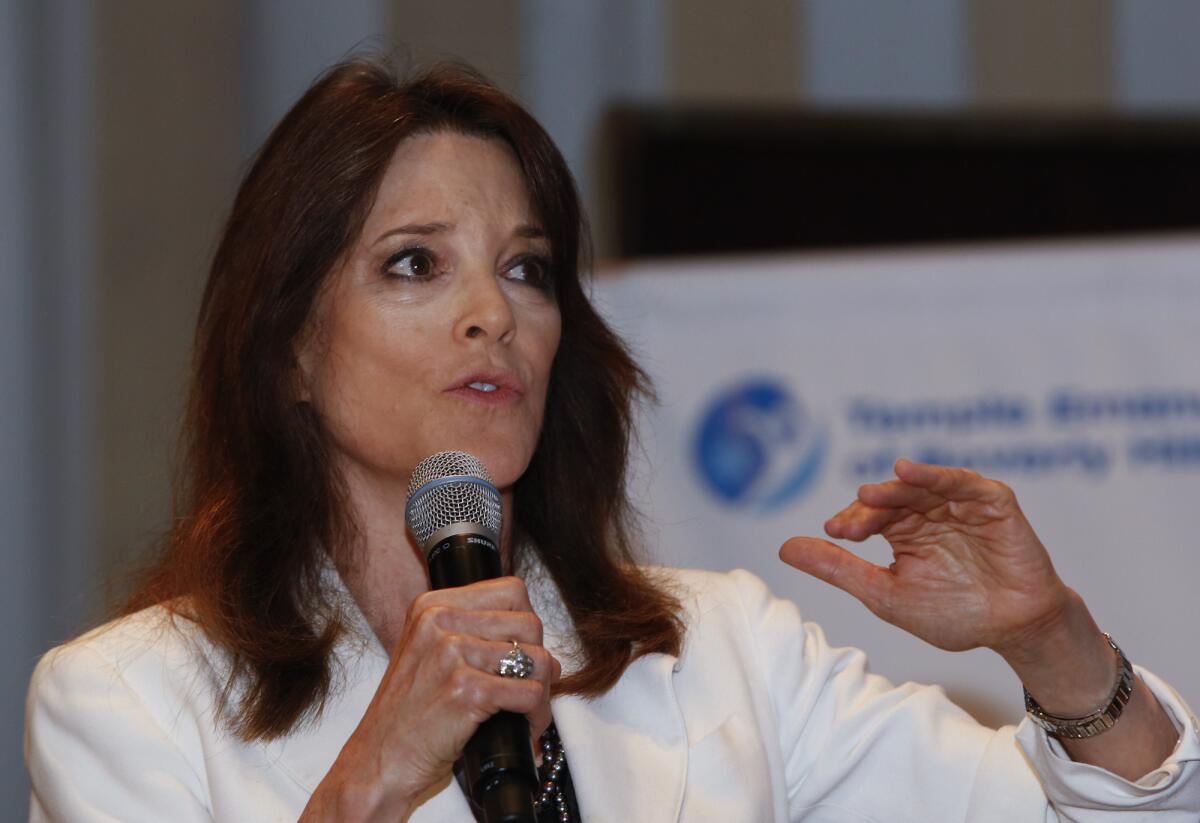Guiding voters to candidates with the right wallets

While there are lots of places online to follow the money in politics, few of them take the approach that all that cash in the system could provide beneficial information to voters.
But that is the thinking behind a project launched this week by a couple of Stanford scholars. They view campaign disclosure reports as a treasure trove of data that can be used to connect neophyte politicos with like-minded candidates.
Like so many other Silicon Valley startups, their project, www.crowdpac.com, is rooted in an algorithm. This one is fueled by campaign cash.
Crowdpac’s motto: “It turns out the best guide to what a politician will do is not what comes out of their mouth, but what goes into their wallet.”
Which interest groups have contributed to a candidate “turns out to be an incredible predictor of how a candidate will behave in office,” said Crowdpac co-founder Steve Hilton, a former advisor to British Prime Minister David Cameron, who is a visiting professor at Stanford.
“Political donors put a lot of effort into where their money should go. Donors do a lot of research about which candidates stand for what. We are crowdsourcing that information.”
The project is initially catering to voters interested in California races. Hilton and his Stanford colleague Adam Bonica, a political science professor, hope to showcase it in the 33rd Congressional District, where a number of well-funded candidates are looking to replace Democrat Henry Waxman, who is retiring.
The website seeks to cater specifically to voters disoriented by the fog of voter guides, campaign advertisements and political bickering. Its interface is simple. Visitors read a few punchy instructions, watch a brief video, and then use a slide tool to quickly map out their where they stand ideologically on a handful of policy issues. They are then invited to rate some prominent politicians using a star system much like the one on Yelp.
Crowdpac then churns through millions of dollars worth of campaign contribution data to spit out a personalized score card of candidates. In the case of Waxman’s heavily Democratic district, the most liberal voters would be steered toward author and activist Marianne Williamson. Those looking for a more moderate candidate might prefer veteran pols Ted Lieu and Wendy Greuel, who both rank a 6.8 out of 10 on the liberalism spectrum, based on the money they received.
It’s the kind of data crunching that Hilton says the strategists at sophisticated Super PACs use to steer their giving. Crowdpac is pitching it to the masses.
“We wanted to get people access to the same sophisticated tools that are currently in hands of the insiders,” Hilton said.
Like the operators of other money and politics websites, Crowdpac has an agenda. In their case, the agenda is to make money. Visitors will eventually have the option of making donations to candidates they come across on the website. Hilton says Crowdpac hopes to generate revenue by tacking on a service fee to those who donate to candidates through the site.
More to Read
Start your day right
Sign up for Essential California for news, features and recommendations from the L.A. Times and beyond in your inbox six days a week.
You may occasionally receive promotional content from the Los Angeles Times.







